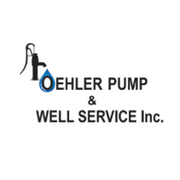A Homeowner's Guide to Well Water pH

If you want to ensure that your private well water is safe and balanced, it's important to evaluate certain elements. One level that needs to be inspected is pH. Here's a closer look at how the parameter impacts your water supply and when treatment is needed.
What Is Water pH?
Ranging from 0 to 14, pH is a measurement of water's acidic levels. Lower ratings indicate higher acidity, while higher levels are more alkaline. The pH level of well water is impacted largely by rainwater and melted snow or ice. The moisture picks up carbon dioxide in the air, and when it falls and enters the soil, it's usually slightly on the acidic side.

Elements in the ground, like calcium in certain rocks, can reduce the pH level of the water as it filters through the sedimentary levels. It's common for wells in some areas, like Mecklenburg County, NC, to experience low pH levels.
Why Is It Important?
Groundwater's pH can impact the home and its residents. High pH levels cause water to taste bitter. It can also leave calcium deposits behind, causing buildup on plumbing fixtures and appliances. Meanwhile, low pH levels can corrode metal materials, like pipes and water heaters. As a result, water in the home may taste metallic and unpleasant.
To prevent damage to your well and household components, balance pH levels with water treatment. After professional testing, a contractor can rectify high or low pH levels through filtration or chemical treatments. On-going testing should be conducted regularly to maintain neutral water.
Protect your private well supply with expert assistance from Oehler Pump & Well Service in Charlotte, NC. The local business offers dependable testing, water treatment, and filtration services to homeowners throughout Mecklenburg, Iredell, and Cabarrus counties. Learn more about how they can help you online, or book an appointment today by calling (704) 875-2209.
About the Business
Have a question? Ask the experts!
Send your question

